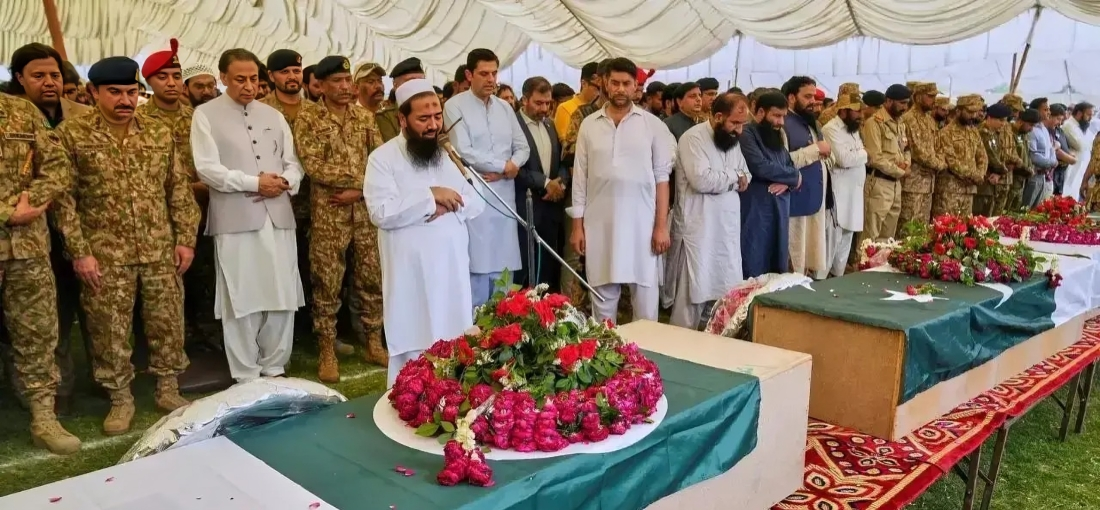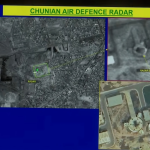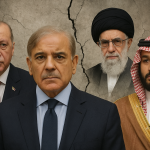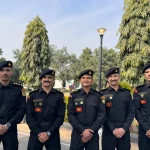In a significant development following the high-impact Operation Sindoor, India has released a detailed report revealing the presence of senior Pakistani military and political officials at the funeral of Hafiz Abdul Rauf, a top Lashkar-e-Taiba (LeT) commander eliminated in the strike. The funeral was held at LeT’s headquarters in Muridke, Pakistan, days after Indian forces struck multiple terror infrastructure sites across Pakistan and Pakistan-occupied Kashmir (PoK) on May 7.
Among the attendees named in India’s dossier were Lieutenant General Fayyaz Hussain, Major General Rao Imran, Brigadier Mohd Furqan of the Pakistani Army, Inspector General of Punjab Police Dr. Usman Anwar, and Malik Sohaib Ahmed, a sitting member of Punjab’s Provincial Assembly. The presence of such high-ranking officials has sparked strong condemnation from Indian authorities, who cited it as “irrefutable proof” of Pakistan’s complicity in sponsoring and supporting terrorist groups like LeT.
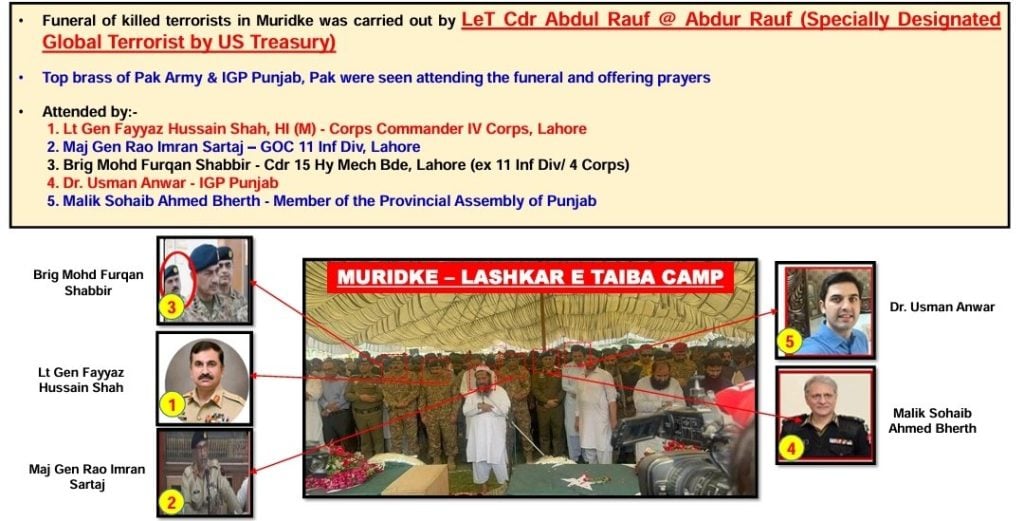
Hafiz Abdul Rauf, one of five key LeT operatives killed in the operation, was reportedly a high-value target with deep connections to past attacks against India, including those executed by The Resistance Front, LeT’s proxy group. His funeral at Markaz Taiba, a facility infamous for training terrorists such as Ajmal Kasab and David Headley—the masterminds behind the 2008 Mumbai terror attacks—was marked by ceremonial honors and state-level representation.
Operation Sindoor was initiated in retaliation for the Pahalgam massacre, where 26 civilians were brutally murdered by terrorists linked to LeT. The Indian military’s coordinated air and ground assaults targeted nine locations—five in PoK and four in Pakistan—crippling key LeT, JeM, and Hizbul Mujahideen assets.
“This funeral was not just a mourning ceremony; it was a statement of state support,” said an Indian defense official, referring to verified visuals of Pakistani officers at the event. The compound at Muridke, long considered a nerve center for LeT activities, has been under global scrutiny, with intelligence linking it directly to Pakistan’s Inter-Services Intelligence (ISI).
Despite being designated a terrorist group by the UN, the U.S., India, and even Pakistan itself since 2002, LeT continues to operate with virtual immunity through its charity front Jamaat-ud-Dawa (JuD). Analysts such as Bruce Riedel have repeatedly warned that the state-sponsored infrastructure backing LeT gives it more reach and danger than even Al-Qaeda.
The fallout from Operation Sindoor has intensified Indo-Pak tensions. Pakistan invoked Article 51 of the UN Charter, claiming the right to self-defense, and reports of retaliatory shelling along the LoC have emerged, resulting in further civilian and military casualties on both sides.
India’s latest revelations are expected to fuel global criticism of Pakistan, especially ahead of FATF reviews, where Islamabad remains on the grey list. New Delhi has reiterated its call for international action against state-sponsored terrorism, demanding that the global community hold Pakistan accountable.
As global reactions begin to emerge, India’s assertive stance signals a renewed diplomatic push to isolate terrorist networks — and those who harbor them — on the international stage.

